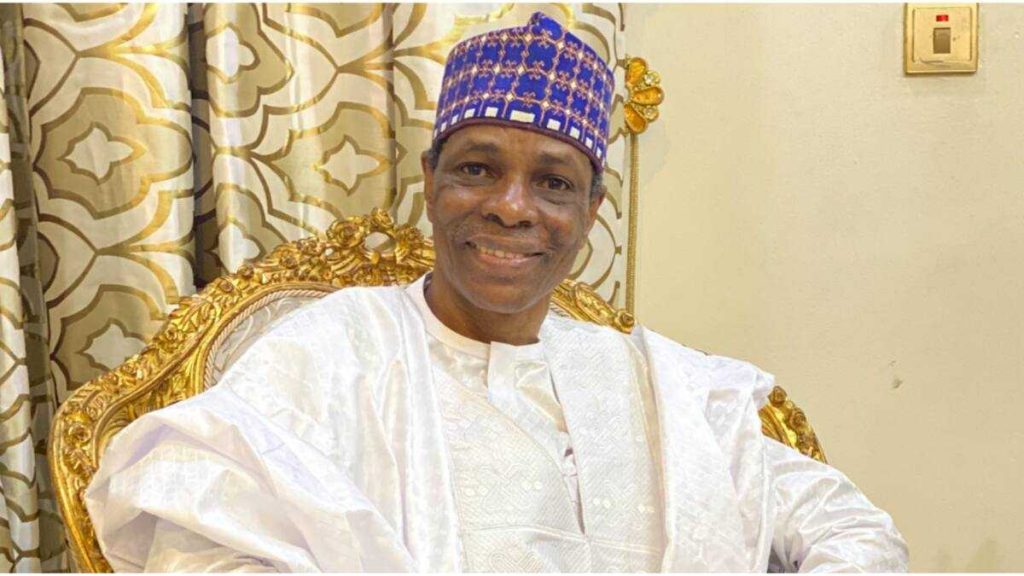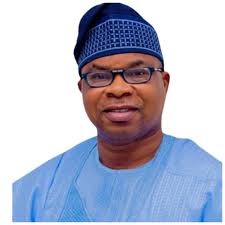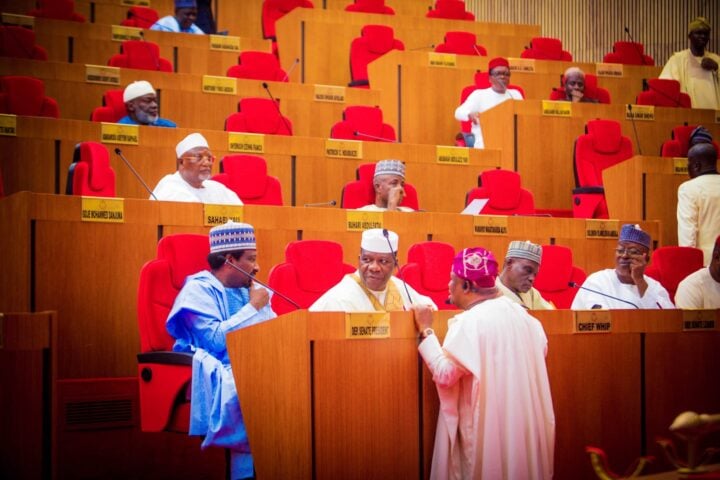Labour Party Convenes National Executive Council Meeting in Abuja

Labour Party (LP) has convened a National Executive Council (NEC) meeting at the Transcorp Hilton Hotel in Abuja.
The gathering, chaired by Senator Nenadi Usman, the party’s Caretaker Committee Chairman, brought together an array of prominent party leaders, including Peter Obi, the LP’s 2023 presidential candidate, and his running mate, Yusuf Datti Baba-Ahmed. Also in attendance were Abia State Governor Alex Otti, the party’s only sitting governor, as well as notable governorship candidates Olumide Akpata (Edo State) and Athan Achonu (Imo State).
The meeting was further bolstered by the presence of key figures such as senators, House of Representatives members, and representatives from the Nigeria Labour Congress (NLC) and Trade Union Congress (TUC) political commissions.
This NEC meeting follows a period of significant turmoil within the LP, marked by a protracted leadership crisis and a recent Supreme Court ruling on April 4, 2025.
The court’s decision effectively brought an end to Julius Abure’s tenure as National Chairman, striking out both an appeal by Usman’s faction and a suit by Abure’s faction. In its ruling, the court emphasized that internal party leadership disputes should be resolved within the party rather than through judicial intervention.
This paved the way for the Usman-led caretaker committee, established in September 2024 at a stakeholders’ meeting in Umuahia convened by Otti and Obi, to assert control and organize the NEC session.
The agenda for the meeting, as outlined by Usman in her opening remarks, includes a comprehensive review of the party’s governorship primaries for Anambra State, which took place on April 5, 2025. The NEC aims to finalize the party’s position on the primaries, where George Moghalu emerged as the candidate for the November 8, 2025, election.
Furthermore, the meeting seeks to address broader organizational issues, such as planning inclusive congresses and a national convention, with the ultimate goal of stabilizing the LP’s leadership structure. The concurrent town hall engagement with stakeholders underscores the party’s efforts to unify its ranks after months of factionalism between the Abure-led National Working Committee (NWC) and the Obi-Otti-backed caretaker group.
The presence of high-profile attendees like Obi, Otti, Baba-Ahmed, Akpata, and Achonu signals a concerted push to consolidate the LP’s influence as a major opposition force ahead of future elections, particularly the 2027 polls.
The meeting has garnered significant public and media attention, with posts on social media platforms like X and reports from reputable outlets such as Channels Television and News Central reflecting a sense of hope for renewal under Usman’s leadership.
However, this optimism is tempered by ongoing tensions with Abure’s faction, which held a separate NEC meeting on April 7 and continues to claim legitimacy despite the court ruling and the Independent National Electoral Commission’s (INEC) non-recognition.
As of 4:01 PM WAT on April 9, 2025, the meeting is ongoing, with the outcomes expected to have far-reaching implications for the LP’s trajectory. The party’s ability to navigate its internal challenges and present a united front will be crucial in its bid to challenge the dominant parties in future elections.
With the LP’s commitment to social justice, workers’ rights, and good governance, the party’s resurgence could have significant implications for Nigeria’s political landscape.
The NEC meeting also presents an opportunity for the LP to reestablish its connection with its grassroots base and reinvigorate its campaign for a more equitable and just society.
The party’s leadership must now work to build on the momentum generated by the meeting, engaging with stakeholders, and addressing the concerns of its members to ensure a united and formidable opposition force.
As the LP looks to the future, its ability to put its internal differences aside and present a cohesive vision for Nigeria’s development will be critical in determining its success in the years to come.
In the coming days and weeks, the LP will need to navigate the complexities of its internal dynamics, managing the expectations of its various stakeholders while working to strengthen its organizational structures.
The party’s commitment to transparency, accountability, and inclusivity will be essential in rebuilding trust and confidence among its members and the broader Nigerian public.
As the LP charts its course for the future, its leadership must remain focused on the party’s core values and principles, ensuring that its actions and decisions align with the aspirations of its members and the Nigerian people.







